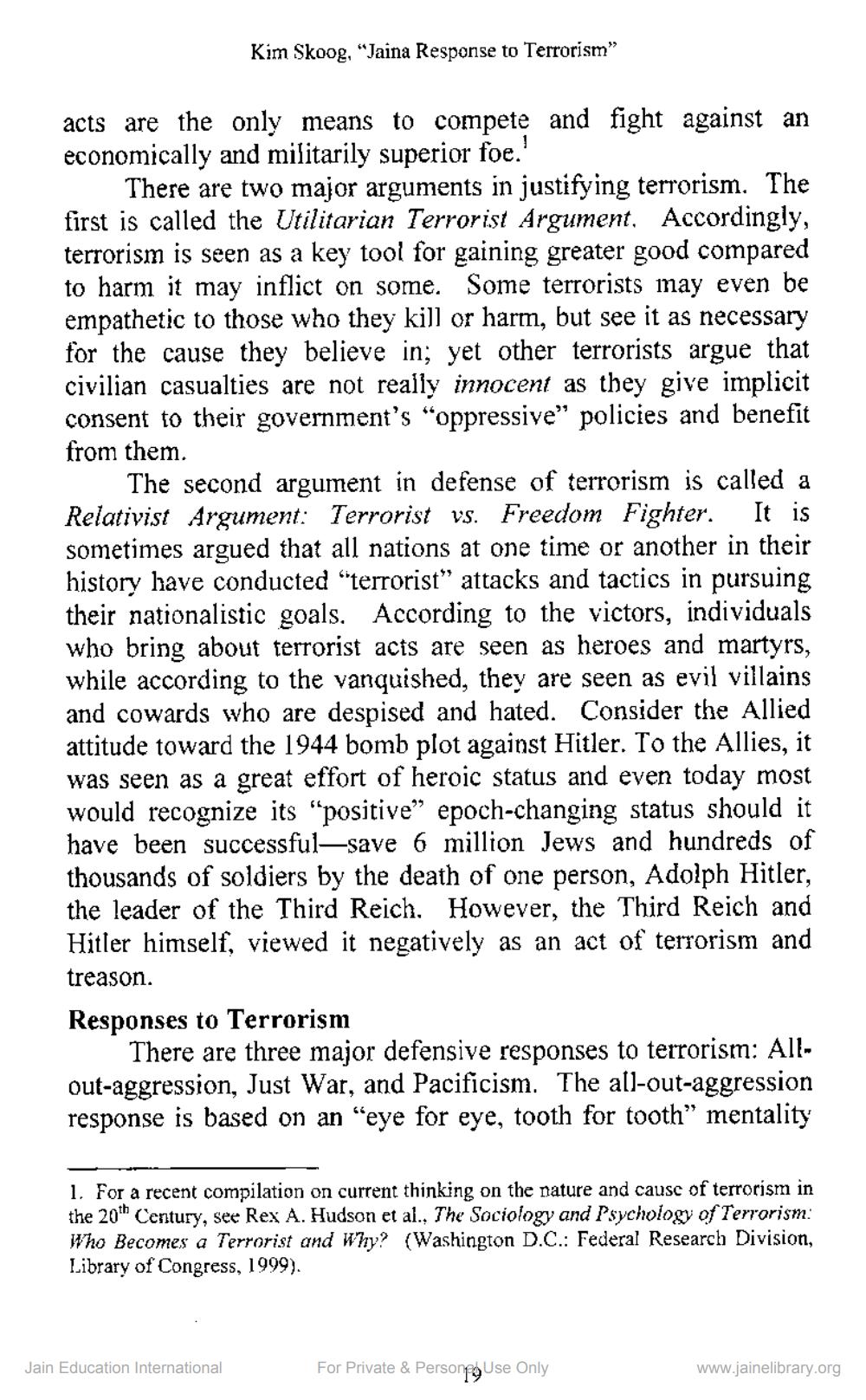Book Title: Jaina Response to Terrorism Author(s): Kim Scoog Publisher: Z_Lessons_of_Ahimsa_and_Anekanta_for_Contemporary_Life_014006.pdf View full book textPage 2
________________ Kim Skoog, "Jaina Response to Terrorism" acts are the only means to compete and fight against an economically and militarily superior foe.' There are two major arguments in justifying terrorism. The first is called the Utilitarian Terrorist Argument. Accordingly, terrorism is seen as a key tool for gaining greater good compared to harm it may inflict on some. Some terrorists may even be empathetic to those who they kill or harm, but see it as necessary for the cause they believe in; yet other terrorists argue that civilian casualties are not really innocent as they give implicit consent to their government's "oppressive" policies and benefit from them. The second argument in defense of terrorism is called a Relativist Argument: Terrorist vs. Freedom Fighter. It is sometimes argued that all nations at one time or another in their history have conducted "terrorist" attacks and tactics in pursuing their nationalistic goals. According to the victors, individuals who bring about terrorist acts are seen as heroes and martyrs, while according to the vanquished, they are seen as evil villains and cowards who are despised and hated. Consider the Allied attitude toward the 1944 bomb plot against Hitler. To the Allies, it was seen as a great effort of heroic status and even today most would recognize its "positive" epoch-changing status should it have been successful-save 6 million Jews and hundreds of thousands of soldiers by the death of one person, Adolph Hitler, the leader of the Third Reich. However, the Third Reich and Hitler himself, viewed it negatively as an act of terrorism and treason. Responses to Terrorism There are three major defensive responses to terrorism: Allout-aggression, Just War, and Pacificism. The all-out-aggression response is based on an "eye for eye, tooth for tooth" mentality 1. For a recent compilation on current thinking on the nature and cause of terrorism in the 20th Century, see Rex A. Hudson et al., The Sociology and Psychology of Terrorism: Who Becomes a Terrorist and Why? (Washington D.C.: Federal Research Division, Library of Congress, 1999). Jain Education International For Private & Persone Use Only www.jainelibrary.orgPage Navigation
1 2 3 4 5 6 7 8 9 10 11 12 13 14 15 16 17
